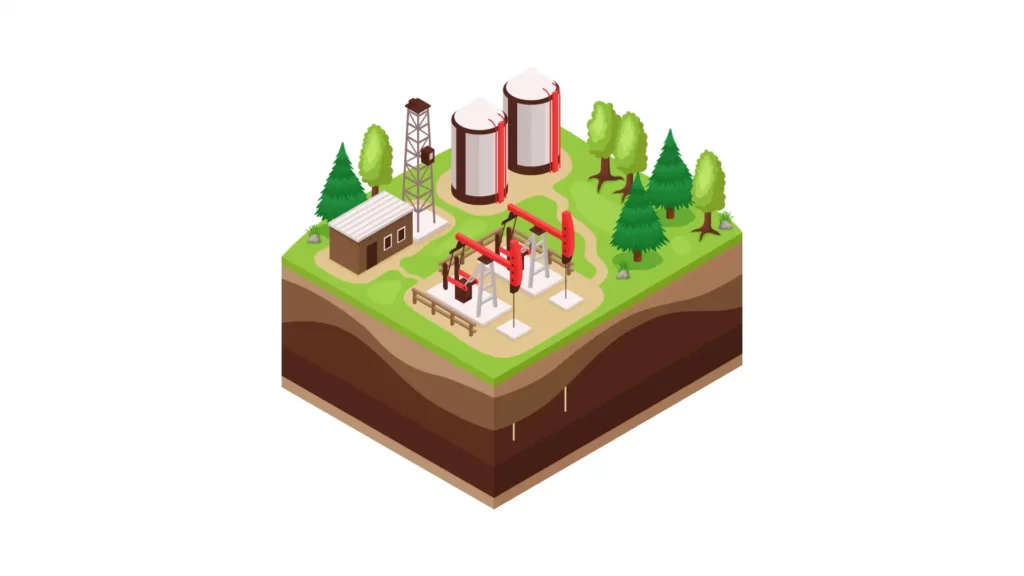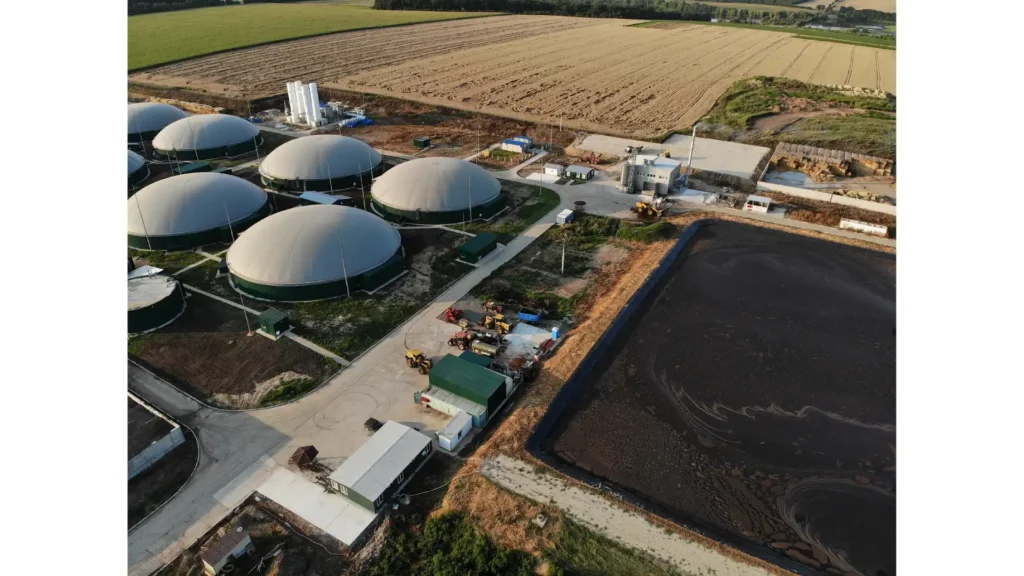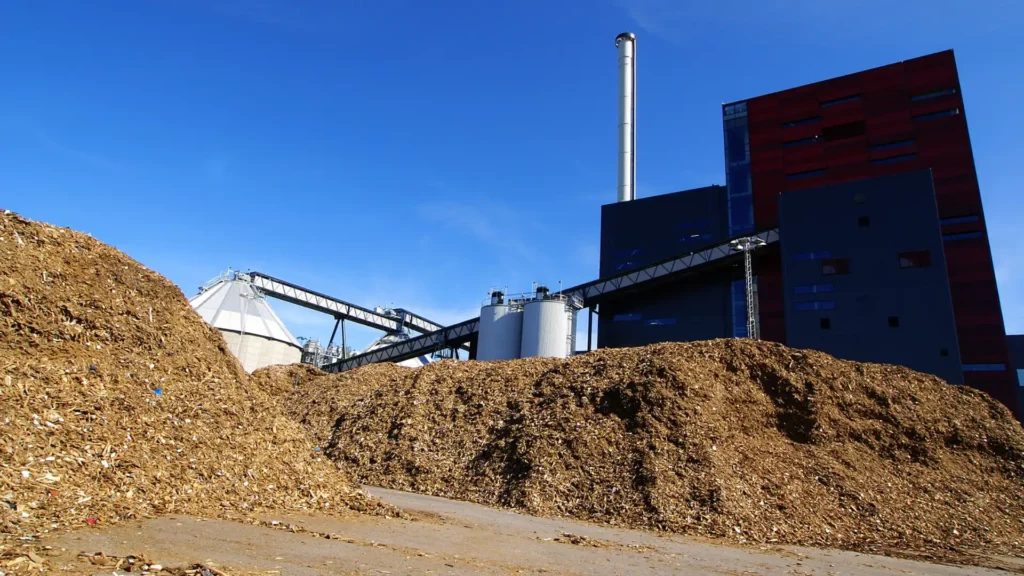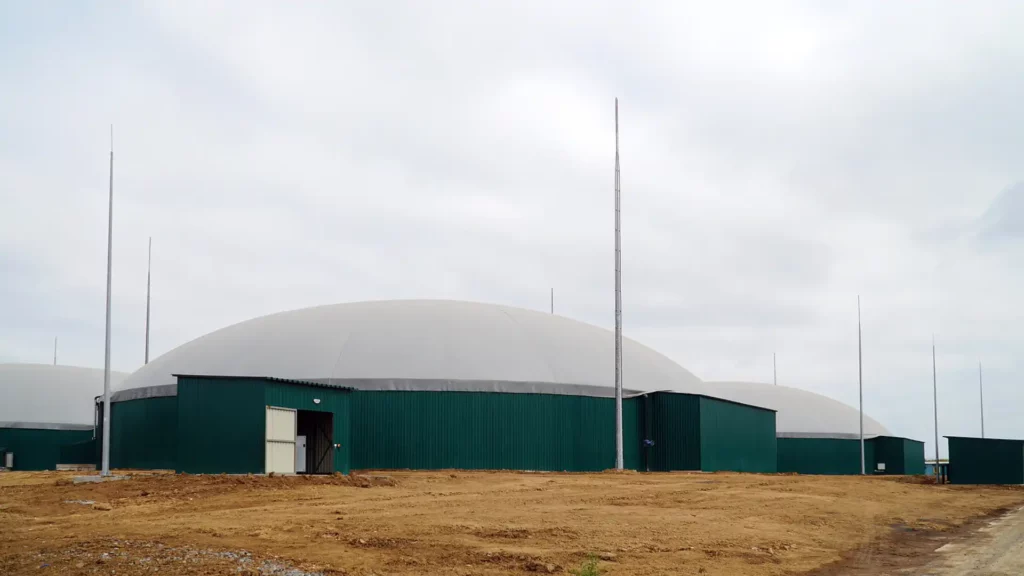In the quest for sustainable and renewable energy sources, biomass energy has emerged as a significant player. Its role in the global energy mix is growing, as is interest in its potential economic impacts.
In this detailed analysis, we'll delve into the economic impact of biomass energy, examining its benefits, challenges, and prospects.
This pillar content aims to provide a comprehensive understanding of biomass energy's role in the economy, leveraging best SEO practices to ensure thorough coverage of the topic.
What is Biomass Energy
Biomass energy, derived from organic materials such as plants, wood, and waste, is one of the oldest sources of renewable energy used by humans.
Today, it is lauded for its potential to reduce greenhouse gas emissions and its versatility as a source of fuel.
As the world seeks alternatives to fossil fuels, understanding the economic impact of biomass energy becomes increasingly important.

Biomass Energy Companies and Their Economic Impact
Biomass energy companies play a crucial role in driving the economic impact of biomass energy. These companies are involved in various aspects of the biomass value chain, including biomass sourcing, processing, and energy production.
Biomass energy companies create jobs, boost local economies, and drive innovation by investing in infrastructure, technology, and workforce development.
They also provide additional income for farmers and landowners through increased demand for biomass feedstock, leading to overall community and economic growth.

The Economic Benefits of Biomass Energy
- Job Creation and Rural Development: Biomass energy projects create jobs, particularly in rural areas, through activities like feedstock collection and plant operation, contributing to economic stability in these regions.
- Energy Cost Stability: Biomass energy provides a reliable and consistent source of renewable energy, stabilizing energy prices and offering long-term predictability for businesses and consumers.
- Local Economic Growth: Utilizing locally available feedstocks stimulates local economies, supporting small-scale producers and encouraging investment in rural communities.
- Waste Management Solutions: Biomass energy addresses waste management challenges by converting organic waste materials into valuable energy products, reducing waste disposal costs, and generating revenue.
- Energy Security: Diversifying the energy mix with biomass reduces dependence on imported fossil fuels, enhancing energy security and mitigating geopolitical risks.
- Rural Revitalization: Biomass energy projects provide additional income streams for farmers and landowners, strengthening rural communities and reducing economic disparities.
- Innovation and Technological Advancement: The development of biomass energy technologies fosters innovation in the renewable energy sector, creating new jobs and driving economic growth.

The Economics of Biomass Energy: Driving Sustainable Growth
Biomass energy economics are crucial for the shift to renewable sources. Policymakers, investors, and businesses must grasp its complexities to benefit.
At its core, the economics of biomass energy revolve around the efficient utilization of organic materials to generate power while simultaneously addressing environmental concerns.
Integrating biomass into the energy mix promotes sustainable economic development. Biomass energy economics benefits include job creation, waste management, and rural revitalization.
Technological Innovations in Biomass Energy
- Enhanced Efficiency in Biomass Boilers: Integration of advanced combustion systems and heat recovery mechanisms to boost energy output and minimize operational costs.
- Innovative Gasification and Pyrolysis Techniques: Advancements in converting biomass feedstocks into syngas or bio-oils, driving down production costs and expanding economic potential.
- Exploration of Biofuel Refinement Processes: Research into hydroprocessing and fermentation to refine biomass-derived oils and alcohols into high-quality transportation fuels.
- Development of Integrated Biorefineries: Holistic approach maximizing economic value from biomass resources, yielding diverse products like biofuels, biochemicals, bioplastics, and biomaterials.
- Driving Economic Viability and Competitiveness: Optimizing energy conversion processes, reducing production costs, and expanding product portfolios to establish biomass energy as a competitive renewable energy solution.
- Harnessing the Power of Innovation: Stakeholders unlocking new opportunities for economic prosperity and environmental sustainability through continuous technological advancements in biomass energy.

Biomass Energy in Developing Economies
The economic impact of biomass energy in these regions is profound, as it provides affordable and reliable energy solutions while creating local employment opportunities and stimulating economic growth.
However, challenges such as inefficient traditional biomass use and lack of infrastructure investment need to be addressed to fully harness the economic potential of biomass energy in developing economies.
International cooperation and targeted investment programs can play a pivotal role in overcoming these barriers and unlocking the socio-economic benefits of biomass energy in these regions.

The Future of the Economic Impact of Biomass Energy
As we look ahead, the future of the economic impact of biomass energy appears promising, with several key trends and developments shaping its trajectory. Here, we explore some of the factors that will influence the future of biomass energy's economic impact:
- Technological Advancements
Technological advancements in biomass conversion are improving efficiency and reducing costs, making biomass energy more competitive with fossil fuels.
Gasification, pyrolysis, and biochemical processes are expanding the range of feedstocks that can be used, enhancing the economic viability of biomass energy.
- Integration with Other Renewable Energy Sources
Biomass energy's future depends on combining it with solar and wind power to create hybrid systems.
This integration improves power generation consistency, addressing renewable energy's intermittency. It enhances energy supply reliability and economic impact.

- Expansion of Biomass Supply Chains
Expanding biomass supply chains is essential for maximizing economic impact of biomass energy.
This involves developing sustainable feedstock sources like energy crops, agricultural residues, and forestry residues. Investments in logistics, transportation, and storage are needed for efficient delivery to energy facilities.
- Policy and Regulatory Support
Policy and regulatory frameworks are crucial for shaping biomass energy's future.
Governments globally recognize renewable energy's significance in meeting climate targets and boosting energy security.
Initiatives like feed-in tariffs, tax breaks, and renewable energy requirements will encourage investment in biomass projects and spur market expansion.
- Global Market Dynamics
The global market dynamics for biomass energy are evolving rapidly, driven by factors such as energy demand, environmental concerns, and technological innovation.
As emerging economies continue to industrialize and urbanize, the demand for clean and sustainable energy solutions is expected to rise.
Biomass energy, with its versatility and scalability, is well-positioned to meet this growing demand and make a significant contribution to the global energy mix.

Frequently Asked Questions (FAQs) about the Economic Impact of Biomass Energy
1. How does biomass energy contribute to job creation?
Biomass energy projects require a diverse workforce, from research and development to plant operation and maintenance. This creates numerous job opportunities, particularly in rural areas where biomass resources are abundant. The economic impact of biomass energy extends beyond energy production, fostering employment and contributing to economic growth.
2. What role does biomass energy play in rural economies?
In rural economies, biomass energy projects can stimulate local economic development by providing an additional revenue stream for farmers and landowners. By utilizing agricultural and forestry residues, biomass energy projects contribute to waste reduction and resource optimization, further enhancing the economic impact of biomass energy in these communities.
3. How does biomass energy contribute to energy security?
Biomass energy diversifies the energy mix, reducing dependence on imported fossil fuels and mitigating the risks associated with fluctuating fuel prices and supply disruptions. This enhances energy security by providing a stable and renewable energy source that can contribute to a more resilient energy infrastructure, thereby positively impacting the economy.
4. What are the environmental benefits associated with biomass energy?
Biomass energy production helps reduce greenhouse gas emissions by utilizing organic materials that would otherwise decompose and release methane, a potent greenhouse gas. Additionally, biomass energy promotes the conservation of natural resources by utilizing waste materials for energy production, thus reducing the environmental impact of waste disposal and contributing to a cleaner environment.
5. How can policymakers support the economic impact of biomass energy?
Policymakers can support the economic impact of biomass energy by implementing supportive policies and regulatory frameworks that incentivize investment in biomass energy projects. This includes financial incentives, such as tax credits and grants, as well as streamlining permitting processes and providing technical assistance to project developers. By creating a conducive environment for biomass energy deployment, policymakers can maximize its economic benefits.
6. What are the challenges facing the widespread adoption of biomass energy?
Despite its benefits, biomass energy faces challenges such as supply chain logistics, competition for biomass materials, and technological barriers. Addressing these challenges requires collaboration between stakeholders, including policymakers, industry players, and researchers, to develop innovative solutions and overcome barriers to biomass energy deployment.
7. How does biomass energy contribute to meeting renewable energy targets?
Biomass energy plays a significant role in helping countries meet their renewable energy targets by providing a reliable and renewable energy source that can complement intermittent renewable energy sources like solar and wind. By investing in biomass energy projects, countries can accelerate their transition towards a more sustainable energy future while fostering economic growth and development.
8. What is the future outlook for the economic impacts of biomass energy?
The future outlook for the economic impacts of biomass energy is promising, with advancements in technology making biomass energy more efficient and cost-effective. As global demand for renewable energy continues to rise, biomass energy is expected to play a crucial role in meeting energy needs sustainably while creating jobs and driving economic development.
9. How can businesses benefit from investing in biomass energy?
Businesses can benefit from investing in biomass energy by diversifying their energy sources, reducing operational costs, and enhancing their sustainability profile. Biomass energy projects can also create new revenue streams and business opportunities, particularly in sectors such as agriculture, forestry, and waste management, thus contributing to long-term economic growth and competitiveness.
10. What are the key considerations for evaluating the economic viability of biomass energy projects?
When evaluating the economic viability of biomass energy projects, key considerations include biomass availability and cost, technological feasibility, policy and regulatory support, market demand for biomass energy products, and potential revenue streams such as electricity generation, heat production, or biofuel production. Conducting a comprehensive feasibility study and engaging with relevant stakeholders can help assess the potential economic impact of biomass energy projects accurately.
Economic Impact of Biomass Energy Conclusion
The economic impact of biomass energy is multifaceted, offering significant benefits in terms of job creation, rural development, energy security, and environmental sustainability.
However, realizing its full potential requires overcoming challenges related to initial costs, technological barriers, and sustainability concerns.
With continued policy support and investment in innovation, biomass energy can play a crucial role in the transition to a more sustainable and economically resilient energy system.

